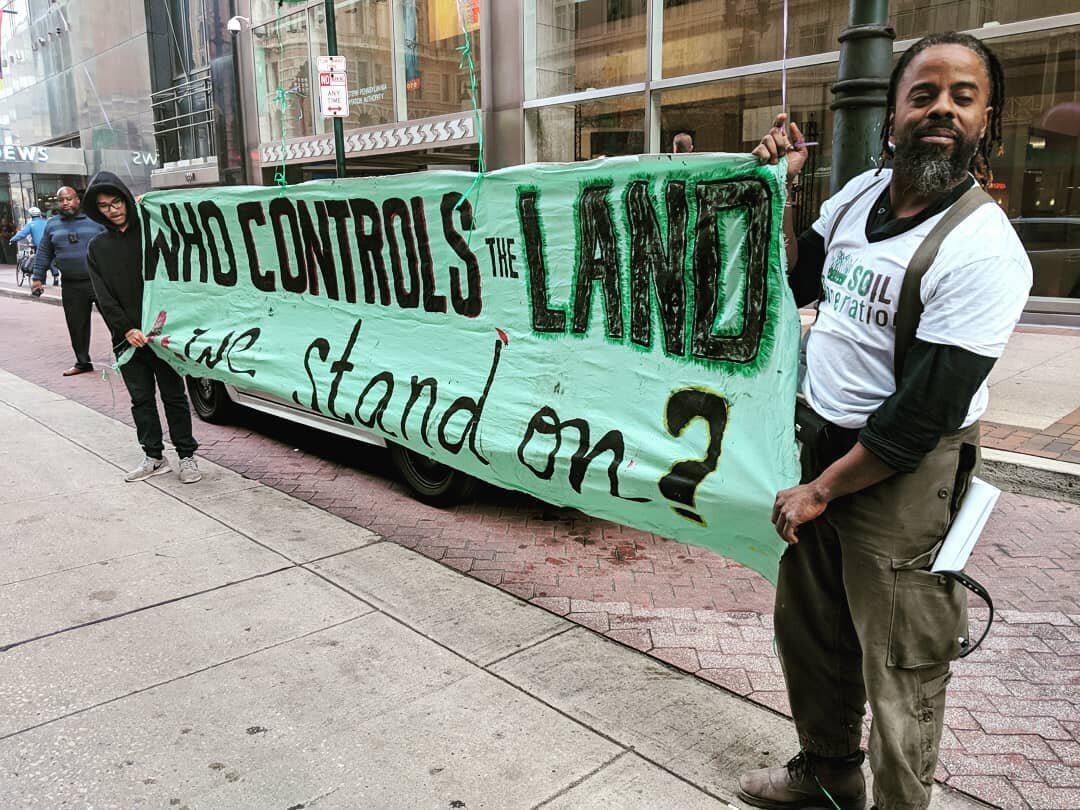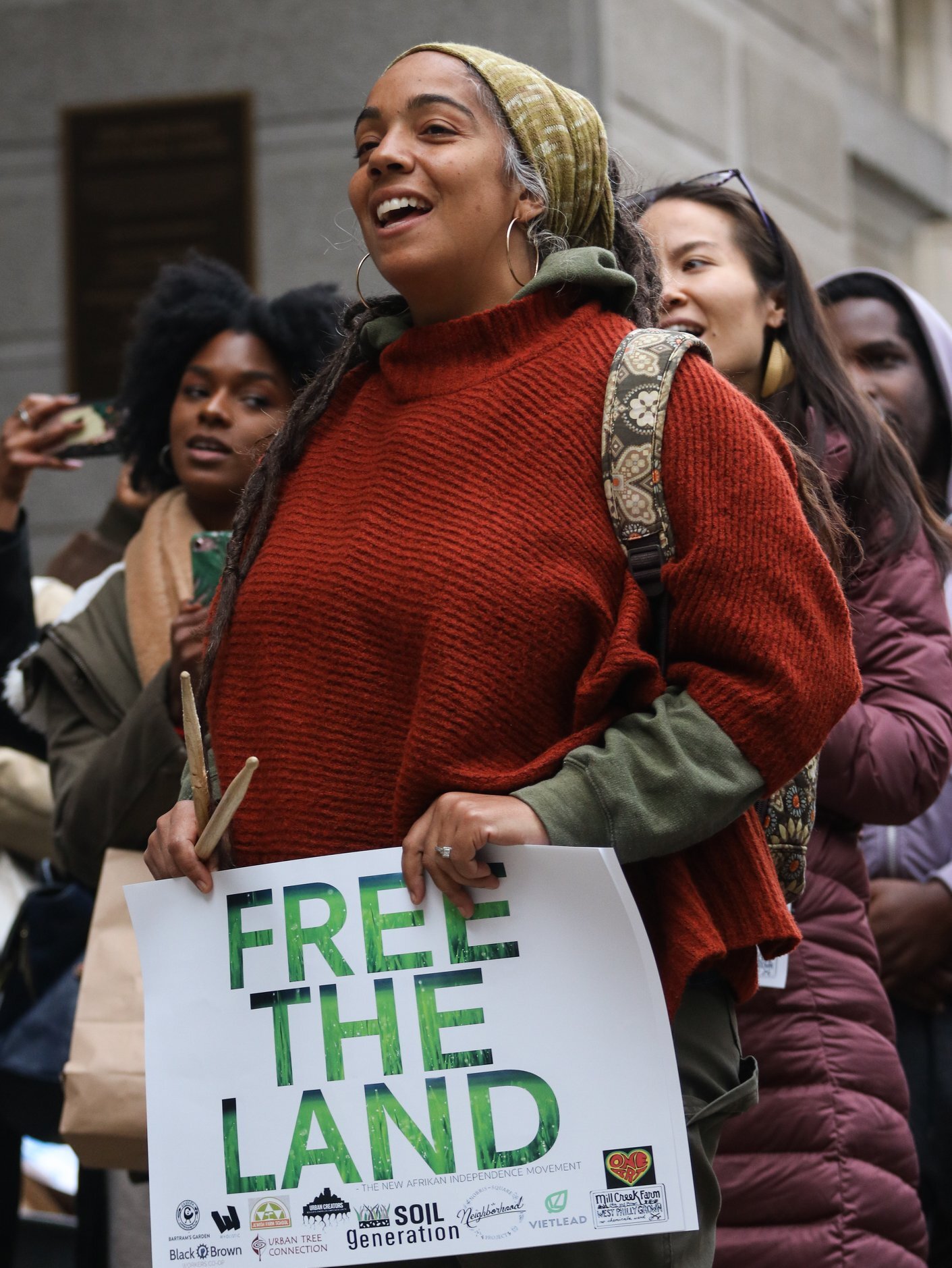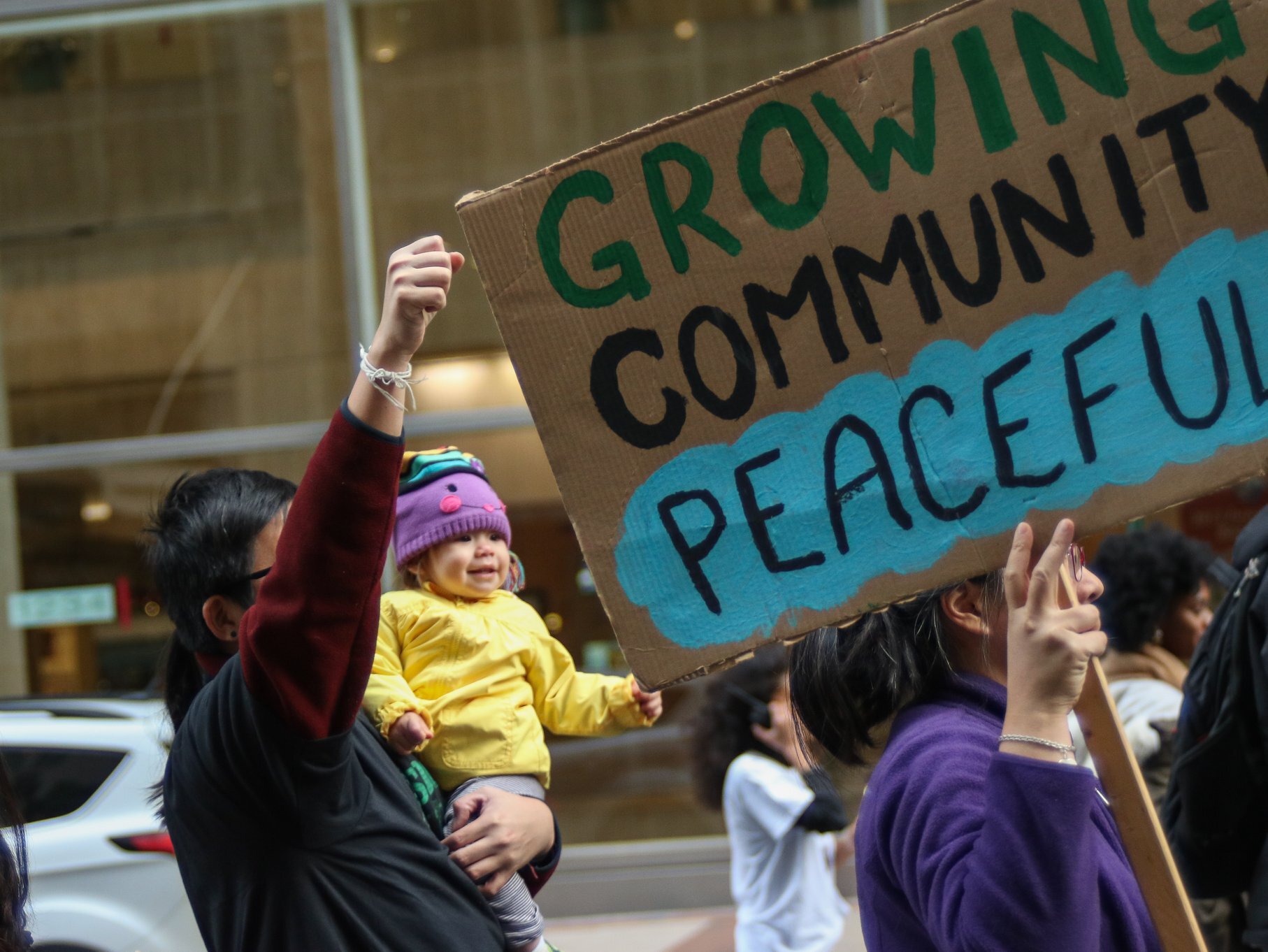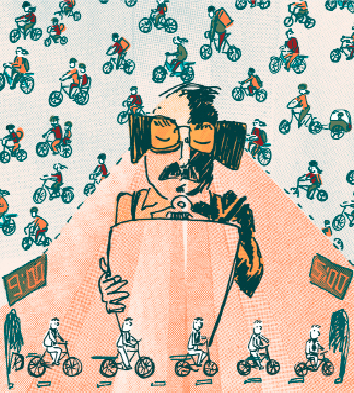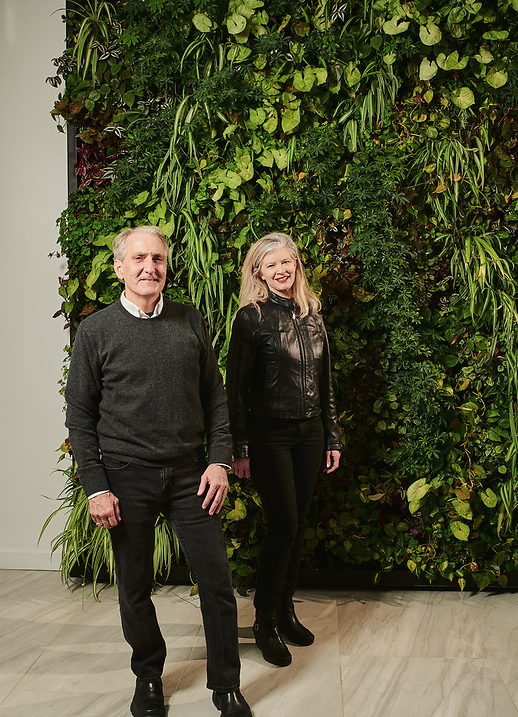Photography by Angela Gervasi
By Kirtrina Baxter & Gennifer Rollins
In October of 2018, members of Soil Generation, a Black- and Brown-led grassroots coalition of farmers, community farmers and gardeners took to the streets of Philadelphia in the name of food and land security.
They marched up and down Market Street, proudly proclaiming, “Whose Streets? Our Streets! Whose Land? Our Land!” Protestors carried pitchforks and signs that read “Free the Land,” angry about land dispossession, though comforted to be among soil friends. There were neighbors pushing children in strollers, comrades in motorized wheelchairs and hijabbed teens, all chanting and sinuously moving toward the same cause: community control of land.
Sonia Galiber, a Soil Generation organizer, explains that the action was a way to protest that Philly farmers aren’t in control of nearly half of the city’s estimated 470 farms, which are often set up on abandoned lots.
Photography by Angela Gervasi
“After years of relationship building and researching how power, land and resources flow through the city, our coalition identified three goals to address threatened gardens,” Galiber says. “End the 10-year tax abatement; stop sending active gardens to sheriff’s sale; and provide gardens real security and pathways to ownership.”
That day served as the midpoint in the grassroots organizing work of Soil Generation and the long call for better land solutions for growers in Philadelphia.
At that time, ending the tax abatement was not a welcome issue in City Hall, and among activists, it was seen as a far-reaching goal. However, advocates for schools had already been pushing for this change. They joined forces with housing and land advocates recently as part of the Alliance for a Just Philadelphia. The pressure worked. In 2019, an important election year, City Council had no choice but to tackle the issue of tax abatement.
The protest made an impact, and today Soil Generation organizers and policy leaders are digging in with the City of Philadelphia to work on Philadelphia’s first Urban Agriculture Plan—a long-term program to support community gardens and urban farms across the city.
“In little over a year, we have seen a big change in our City Council, with a tense election forcing the city to deal with land issues,” explains Lan Dinh from VietLead, a community advocacy organization for Vietnamese and Southeast Asian immigrants and refugees. “We finally saw some movement on the 10-year tax abatement.”
Working alongside Philadelphia Parks & Recreation and the urban planning firm Interface Studio, Soil Generation members now have partners in their pursuit to ensure racial equity and community at every level of this plan.
Changing historically inaccurate narratives around Black people’s relationship to land and their foodways are part of the current paradigm we seek to shift, and doing so is a critical step toward reclaiming our histories, building self-determination and ultimately gaining food sovereignty.
Altogether our demand to have control of these farms and gardens helps set the stage for a future where community ownership of food and land is possible, and the threat of land insecurity is low, especially for long-term and migrant Black and Brown growers.
Photography by Angela Gervasi
A key measure of this strategic plan is transparency and accountability to the community of growers who have been fighting for years to have better support and access to land. The goals of racial and economic equity are entrenched in the plan’s process and therefore will translate in the final outcome to some benefit for those communities most affected by food insecurity.
The people are ready to accept these community-informed solutions in order to create systems of support that will enrich food and land work, according to Ashley Gripper, Soil Generation data expert and native Philly grower.
“Gardeners are looking to receive more support from the city and are hopeful that it will come through the efforts of the Urban Agriculture Plan,” she says.
However, despite the plan, gardens are still being pulled out from under people’s feet and sent to sheriff’s sale, and practiced Black and Brown gardeners and organizations still face incredible blockades to purchasing their own gardens or new land.
The economic and political landscape of land ownership in Philadelphia works against many of its residents, but still, we grow, and we expect to see change and hope for a better, more equitable food system.


